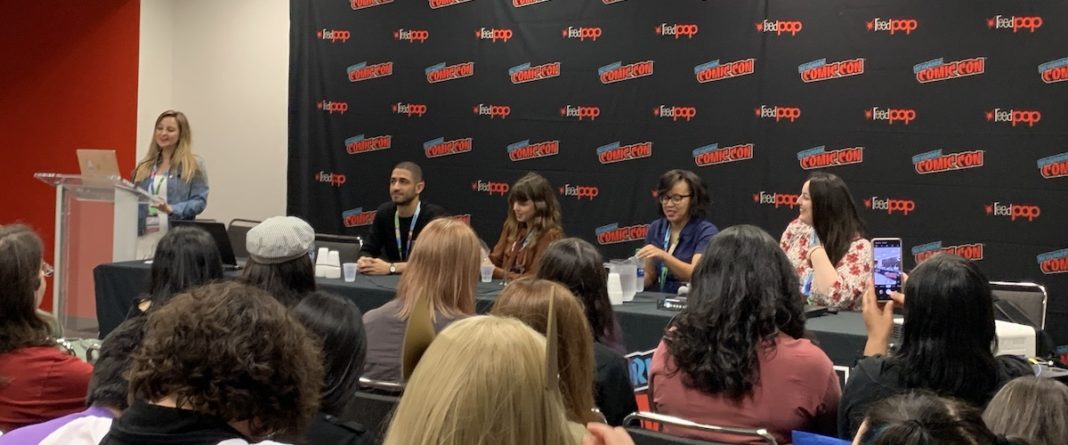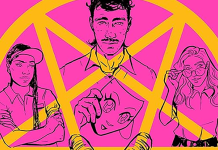By Amanda Steele
This panel was made up of six authors who write in the speculative YA genre. While many panels are devoted to learning how to write books or what the process is like, a focus on the interiority of characters is rare, which makes this approach unique. This panel was all about the authors discussing how their teenage protagonists deal with trauma in the speculative worlds they inhabit. Trauma is a big part of many book genres, but it doesn’t get discussed in-depth often at panels at cons.
The panelists include Arvin Ahmadi (Down and Across), Dhonielle Clayton (The Belles), Laura Sebastian (Ash Princess Trilogy), Rory Power (Wilder Girls), and Victoria Lee (The Fever King).
As the host of the panel, Laura Sebastian, started off the panel by saying, most teenagers in speculative fiction deal with significantly traumatic events from being faced with evil governments, complicated family relationships, or violence from fighting.
The panelist got right into the questions by asking about how to get in the headspace to write these traumatic events and how they as authors keep themselves in a positive headspace. This was an interesting point to talk about as for many authors writing such heavy subjects can be draining. Rory Power talked about using playlists helps her to both get into and out of the mind set to write about trauma.
Panelists, especially Dhonielle Clayton, also talked about how speculative fiction draws on traumatic events and psychological and social issues in the real world. She talked about her book, The Belles, which deals with trends and body modification – something that many real-world teenagers relate to.
One notable quote from this panel was when panelists discussed how so much of YA speculative fiction deals with “intersectional and generation trauma and what it means to be a victim and a survivor.”
Victoria Lee talked about writing multiple books in a series and dealing with character’s trauma as the story goes on. She talked about that in her book, The Fever King, that she thought this exploration allowed her to show her character’s journey of learning that “being a victim is not a weakness.”
The panelists also discussed the importance of the idea that many of these characters continue on and are able to heal form their trauma,especially in YA fiction. Rory Power mentioned that it’s important for her to focus on the idea of continuation and that life goes on even after trauma.
Arvin Ahmadi also spoke about how important it was for him in his work to give teens an outlet to feel like they were being heard. He wanted his character to be heard in her trauma as this is something that many teens don’t feel in their real life, especially LGBTQ+ teens and people of color.
Lastly, an important takeaway from this panel was the idea that trauma in speculative YA can act as both activism as well as catharsis for real-life people dealing with trauma. Dhonielle Clayton pointed out that many of these books also deal with real-life political and social issues, which is another way that teens, and adults, who read these books can connect and process their own trauma when reading.
It was also fascinating to learn how these various YA novelists are taking many current topics and events from big companies selling our data to diet pill fads and more and turning them into books that deal with these traumas in a fictional way. The panelists also discussed how in most of these books the adults are often the ones inflicting the trauma, and how adult culture impacts teenagers.
Panelists: Arvin Ahmadi: Down and Across, Girl Gone Viral
Dhonielle Clayton: The Belles, The Pretty Things
Laura Sebastian: Ash Princess Trilogy
Rory Power: Wilder Girls
Victoria Lee: The Fever King
For all your NYCC ’19 coverage on panels, announcements and more, stay tuned to The Beat.








